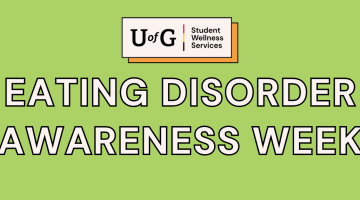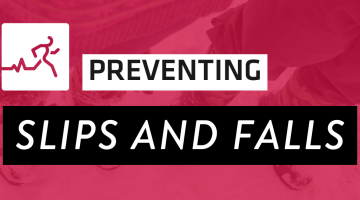All About: Alcohol
An Infokit by the Wellness Education and Promotion Centre, University of Guelph
Topics Include:
- What is Alcohol?
- Effects of Alcohol
- Your Relationship with Alcohol
- Harm Reduction Strategies
- Alcohol Poisoning
- Dangerous Alcohol & Medication Combinations
- Resources
What is Alcohol?
Alcohol is a depressant drug. That means it slows down the parts of your brain and central nervous system that affect your thinking and behaviour, as well as your breathing and heart rate. These effects increase the higher a person’s Blood Alcohol Concentration (BAC) is.
Effects of Alcohol
The way alcohol affects you depends on many factors, including:
- your age, sex and body weight
- how sensitive you are to alcohol
- the type & amount of food in your stomach
- how much and how often you drink
- how long you’ve been drinking
- the environment you’re in
- how you expect the alcohol to make you feel
- whether you’ve taken any other drugs (illicit, prescription, over-the-counter or herbal)
An Unhealthy Relationship with Alcohol...
Warning signs of problems may include:
- Consistent physical signs of alcohol use; loss of coordination, falls, slurred speech
- Lack of interest in self-care: poor personal hygiene, problems sleeping, poor eating habits
- Shifts in mental well-being; demonstrating irritability, depression or confusion
- Denial of alcohol use, possibly resulting in trying to cover drinking habits
- Loss of memory of events that take place while under the influence of alcohol
- Isolation or disconnection from relationships and socialization
Harm Reduction:
Reducing the risks associated with high-risk behaviours, while still taking part in these activities
Before Drinking:
- Eat something: food reduces the speed that your body absorbs alcohol
- Set a limit for yourself for how much you want to drink
While Drinking:
- Drink water at the same time! - this will keep you more hydrated and help avoid getting sick the next day
- Stay with friends - if something goes wrong while drinking, friends can help
When Going Out:
- Plan a safe ride home - have a designated driver or plan a ride company to use
- Choose places you feel comfortable in!
What is Alcohol poisoning?
Alcohol Poisoning is a severe physical reaction to an overdose of alcohol.
Symptoms to look out for include:
- semi or unconscious individual who cannot be woken
- cold, clammy, pale or blueish skin
- slow or irregular breathing patterns
What do I do if I Suspect Alcohol Poisoning?
Call for help from the Campus Safety Office 519-824-4120 ext. 52000 or dial 911 for immediate support. Get consent if you can. Do not leave the person alone!
Dangerous Alcohol & Medication Combinations:
When combined with certain drugs, the effects of alcohol on the body can be substantially increased. Always consult your doctor when considering drinking alcohol while taking medication.
- Antihistamines: Can cause dizziness, drowsiness, and impaired coordination
- Antibiotics: Can cause nausea, vomiting, and flushing
- Antidepressants: Can cause sedation, impaired coordination and thinking
- Antipsychotics: Can cause impaired coordination and fainting
- Blood-Thinners: Can cause internal bleeding and impaired blood clotting
- Blood-pressure Lowering Drugs: fainting and increased alcohol intoxication
- Diabetes Drugs: nausea, vomiting, and lactic acid buildup in blood
- Muscle Relaxants: increased alcohol intoxication
- Pain Relievers: internal bleeding and liver damage
- Sleep Drugs: sedation and increased risk of unexpected nighttime behaviours
Resources:
Campus Resources:
- Counselling Services: 519-824-4120 ext. 53244
- Student Health Services: 519-824-4120 ext. 52131
- Wellness Education & Promotion Centre & Student Support Network: 519-824-4120 ext. 53327
Community Resources:
- Alcoholics Anonymous Guelph: 519-836-1522
- Homewood Health Community Alcohol & Drug Services: 519-824-1010
- Distress Centre: 519-821-3760
- Youth Line: 519-821-5469
National Resources:
- Centre for Addiction and Mental Health (CMHA) (Waterloo-Wellington): 519-884-9757
- Drug and Alcohol Registry of Treatment (DART): 1-800-565-8603
- Good2Talk: 1-866-925-5454
- Canadian Drug & Rehab Centres Directory: 1-855-878-0171
- Ontario Addiction & Treatment Centre: 905-773-3884



